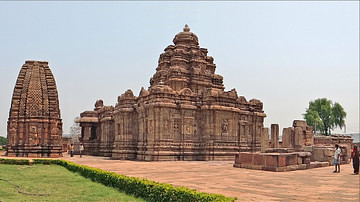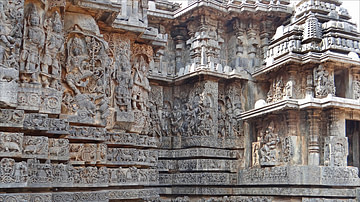Search Articles
Browse Content (p. 144)

Article
Reforms of Augustus
Emperor Augustus (27 BCE – 14 CE) accomplished much during his time on the Roman throne, far more than many of his successors. According to historian Mary Beard in her book SPQR, he transformed the structures of Roman Empire, including its...

Article
The Didache: A Moral and Liturgical Document of Instruction
During the early years of Christianity, many of the church leaders or "Fathers" wrote down admonishments and instruction on what it meant to be a follower of Jesus as well as what liturgical ceremonies should be followed as a believer in...

Article
Legends of the Rollright Stones, Oxfordshire
The Rollright Stones is the collective name for a group of enigmatic prehistoric monuments located next to an ancient ridgeway known as the Jurassic Way, on the border between the English counties of Oxfordshire and Warwickshire. The name...

Article
The Temples of Pattadakal
The history of Pattadakal goes back to a time when it was called Kisuvolal, a valley of red soil. It even found a mention in Ptolemy's Geography in the 2nd century CE. Presently Pattadakal is located in the district of Bagalkot, state of...

Article
Cuneiform Lexical Lists
Lexical lists are compilations of cuneiform signs and word readings written on clay tablets throughout Mesopotamia. From the late 4th millennium BCE up to the 1st century CE, scribal communities copied, modified, and passed on these cuneiform...

Article
Hoysala Architecture
The Hoysala era (1026 CE – 1343 CE) was marked by illustrious achievements in art, architecture, and culture. The nucleus of this activity lay in the present day Hassan district of Karnataka, India. The most remarkable accomplishment of this...

Article
The Phoenicians - Master Mariners
Driven by their desire for trade and the acquisition of such commodities as silver from Spain, gold from Africa, and tin from the Scilly Isles, the Phoenicians sailed far and wide, even beyond the Mediterranean's traditional safe limits of...

Article
Daily Life in Ancient China
Daily life in ancient China changed through the centuries but reflected the values of the presence of gods and one's ancestors in almost every time period. Villages like Banpo show evidence of a matriarchal society, where there was a priestly...

Article
Old Testament Pseudepigrapha
The Old Testament Pseudepigrapha are the non-canonical writings of Judaism and Christianity, ranging from the 5th century BCE to the 9th century CE. Pseudepigrapha comes from a Greek noun denoting writings with a false superscription or name...

Article
The Aztec Calendar
The Aztecs of ancient Mexico measured time with a sophisticated and interconnected triple calendar system which followed the movements of the celestial bodies and provided a comprehensive list of important religious festivals and sacred dates...